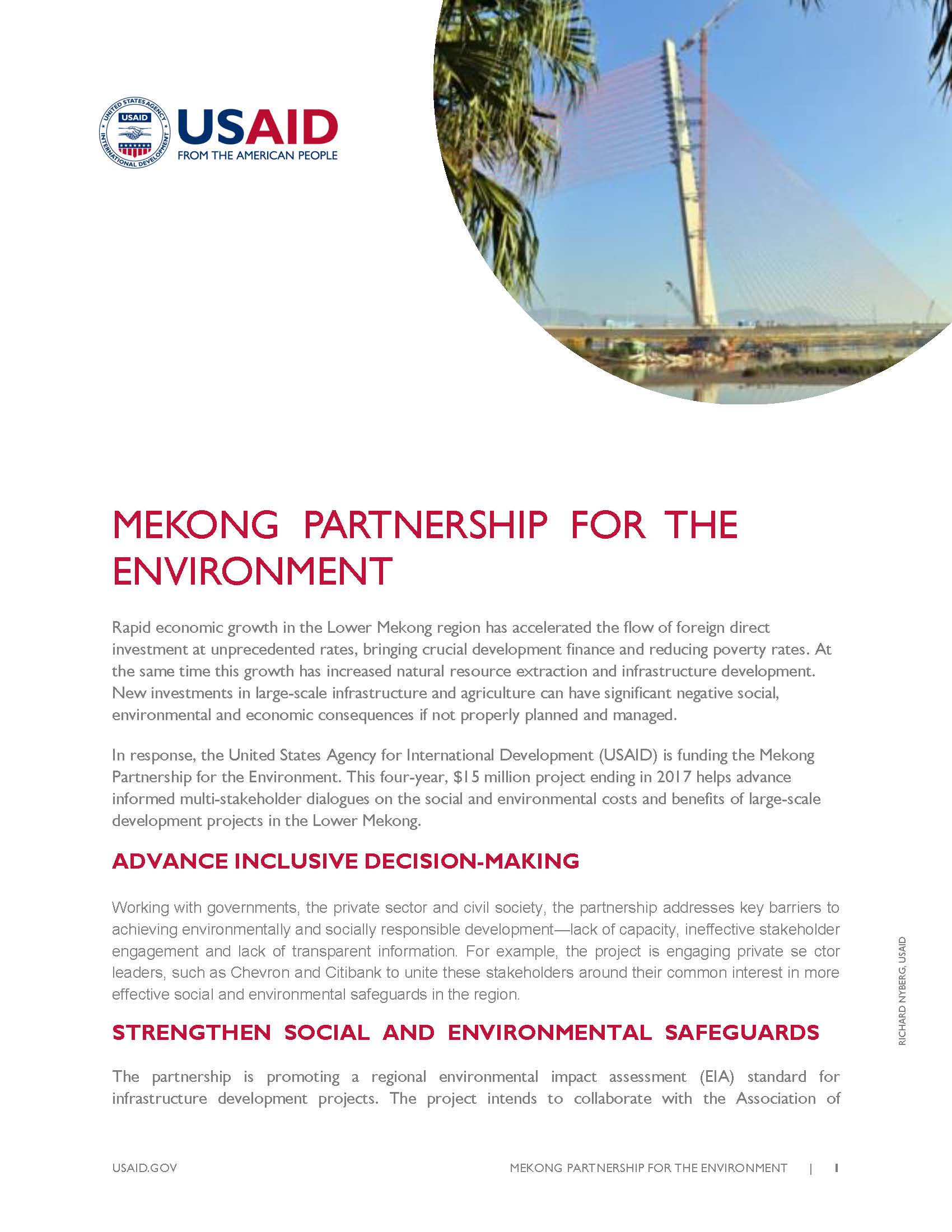Mekong Partnership for the Environment ![]() (pdf - 149k)
(pdf - 149k)
Rapid economic growth in the Lower Mekong region has accelerated the flow of foreign direct investment at unprecedented rates, bringing crucial development finance and reducing poverty rates. At the same time this growth has increased natural resource extraction and infrastructure development. New investments in large-scale infrastructure and agriculture can have significant negative social, environmental and economic consequences if not properly planned and managed.
In response, the United States Agency for International Development (USAID) is funding the Mekong Partnership for the Environment. This four-year, $15 million project ending in 2017 helps advance informed multi-stakeholder dialogues on the social and environmental costs and benefits of large-scale development projects in the Lower Mekong.
ADVANCE INCLUSIVE DECISION-MAKING
Working with governments, the private sector and civil society, the partnership addresses key barriers to achieving environmentally and socially responsible development—lack of capacity, ineffective stakeholder engagement and lack of transparent information. For example, the project is engaging private sector leaders, such as Chevron and Citibank to unite these stakeholders around their common interest in more effective social and environmental safeguards in the region.
STRENGTHEN SOCIAL AND ENVIRONMENTAL SAFEGUARDS
The partnership is promoting a regional environmental impact assessment (EIA) standard for infrastructure development projects. The project intends to collaborate with the Association of Southeast Asian Nations (ASEAN), the Asian Development Bank’s Greater Mekong Sub-region program and other donor organizations to advance EIA best policy and practices in the region. Robust EIA processes are essential to ensuring inclusive decision-making on investments that will shape future economic growth, food security and environmental sustainability.
INCREASE ACCESS TO QUALITY INFORMATION
To help achieve more sustainable and equitable development outcomes in the Lower Mekong, the partnership is working with journalists, civic leaders and academics to use solid, science-based information on the social and environmental costs and benefits to inform decision-making on large-scale infrastructure development projects.
PARTNERS
Pact, an international non-governmental organization, is leading a consortium of partners to implement the project, including the Stockholm Environment Institute, Internews, Wildlife Conservation Society and East West Management Institute.
Click here for the pdf version.








Comment
Make a general inquiry or suggest an improvement.